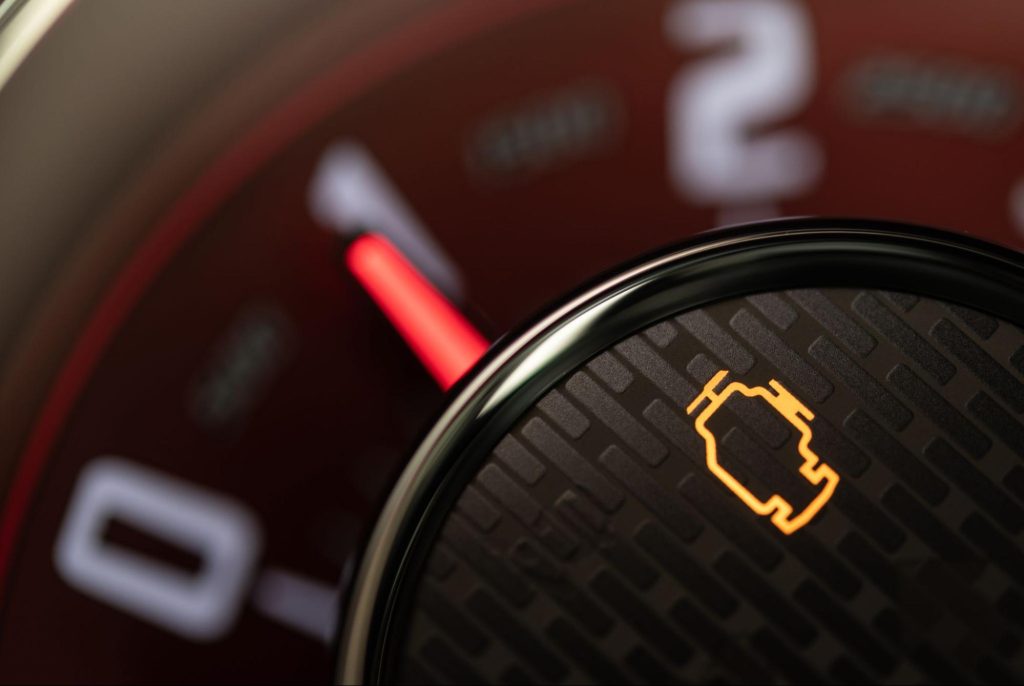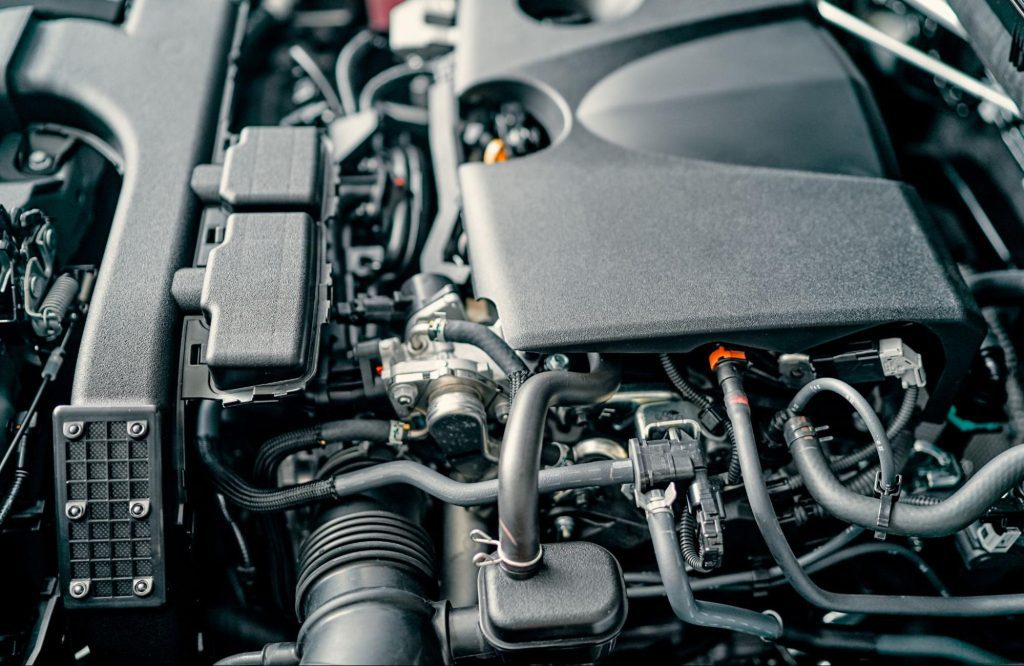Recognizing Bad PCM Symptoms: Signs Your PCM Needs Attention
Your vehicle’s Powertrain Control Module (PCM) is the brain behind the engine and transmission, and when it starts to fail, the signs are hard to ignore. From stalling and shifting issues to sudden dashboard warnings, bad PCM symptoms can quickly turn into costly repairs if left unaddressed. Recognizing the red flags early can save you time, money, and a major headache down the road.
Think your PCM is acting up? Contact SOLO Auto Electronics for expert testing, rebuilding, and fast turnarounds that get you back on the road with confidence.
What Does a PCM Do in Your Vehicle?


The Powertrain Control Module (PCM) is the nerve center of your car’s performance. Acting as the engine control module and transmission brain, the PCM monitors and adjusts dozens of functions in real-time. When there’s a PCM issue, everything from driveability to fuel efficiency can take a hit—and that check engine light won’t be far behind.
Let’s break down two core functions the PCM manages every time you start your engine.
Engine Timing: Precision You Can Feel
Engine timing is all about firing the spark plugs at the right moment. Your PCM constantly adjusts this timing based on load, temperature, throttle position, and more. When the PCM works properly, your engine runs smoothly, efficiently, and powerfully.
But when something’s off—a corrupted signal, sensor error, or failing module—you might notice hesitation, poor combustion, or even misfires. That’s when the check engine light becomes more than just a warning—it’s a red flag your engine control module could be failing.
Transmission Shifts: Smooth or Sloppy?
The PCM controls the engine and commands the transmission. It reads input from sensors like vehicle speed, throttle angle, and load to determine when and how hard to shift gears.
If you’re experiencing hard shifts, delayed gear changes, or stuck in a single gear, you’re likely dealing with a PCM issue. These symptoms can affect your fuel efficiency and lead to bigger drivetrain problems if ignored.
Common Symptoms of a Bad PCM


A failing Powertrain Control Module can trigger a wide range of driveability issues. Since the PCM acts as both the engine and transmission control module, even small glitches can affect your car’s optimal performance. Here are the most common signs that something’s wrong—and when it might be time for testing or PCM reflashing:
- Check Engine Light that keeps returning
If the light comes back even after a fix, your PCM could be misreading signals or sending bad data. - Poor fuel economy
An incorrect air-fuel mixture caused by PCM failure can seriously reduce efficiency. - Hard or erratic shifting
Unexpected gear changes or hesitation may point to problems with the transmission control module functions inside the PCM. - Engine stalling or rough idling
If the PCM can’t control timing or airflow properly, your engine may stall, surge, or idle rough. - Failed emissions tests
A faulty air-fuel ratio and poor sensor communication can result in high emissions output. - The vehicle won’t start or stays in limp mode
A dead PCM or corrupted program may keep your vehicle from starting or cause it to enter fail-safe mode. - Inconsistent sensor readings during diagnosis
If you’re using advanced diagnostic tools and seeing unstable or illogical values, the PCM might be misinterpreting inputs or failing to send correct outputs. - Reflashing doesn’t hold
If a PCM reflashing procedure doesn’t stick or fails to resolve the issues, the module may be physically damaged or too corrupted to repair.
Check Engine Light: Is the PCM to Blame?


In a modern vehicle, the Powertrain Control Module (PCM) is a critical component that oversees both engine and transmission functions. When the check engine light comes on and routine fixes don’t solve the issue, your PCM could be at the center of the problem.
A failing PCM can disrupt engine performance by mismanaging ignition timing, fuel delivery, and emissions controls. It can also cause electrical issues, like erratic sensor readings or inconsistent communication between systems. These failures can trigger a CEL that keeps returning—even after repairs or resets.
While many things can cause a check engine light, a deeper issue with the PCM shouldn’t be overlooked—especially when your vehicle starts showing multiple system faults with no clear mechanical cause. Addressing the problem early with expert diagnostics or a reflash can help you avoid unnecessary part replacements and restore full performance.
When Transmission Issues Signal a Failing PCM
Your PCM doesn’t just manage the engine—it also plays a key role in transmission control. In modern autocomputers, the PCM communicates constantly with sensors and solenoids to ensure smooth, precise gear changes. When it starts to fail, those shifts become anything but smooth.
If you’re noticing erratic shifting, delayed engagement, or being stuck in a single gear, those aren’t just signs of wear—they could be symptoms of PCM failure. These glitches can lead to poor performance, increased wear on transmission components, and even safety issues while driving.
Since the PCM controls critical engine functions from inside the engine compartment, any failure can disrupt how the transmission interprets speed, load, and throttle input. Left unchecked, a bad PCM can create a domino effect of problems that cost far more than a simple rebuild.
Engine Performance Problems Linked to PCM Failure


When your engine starts running rough, stalling, or losing power, the issue might not be mechanical—it could be your PCM. While many use the terms interchangeably, the ECM (Engine Control Module) focuses solely on the engine, whereas the PCM (Powertrain Control Module) oversees both the engine and transmission. That broader role means PCM failure symptoms often affect multiple systems at once.
Signs of PCM-related engine trouble include:
- Rough idling or surging
- Unexpected power loss
- Misfires under load or during acceleration
- Trouble starting the engine
During vehicle diagnostics, these symptoms may produce vague or inconsistent fault codes, making it difficult to trace the problem without targeted PCM testing. That’s why understanding the difference between an ECM and PCM matters—especially during the repair process.
A failing PCM might misread sensor inputs or send incorrect outputs to ignition and fuel systems. Without proper control over timing and the air-fuel ratio, your engine’s performance suffers—and in some cases, the vehicle may not start at all.
How PCM Damage Happens: Causes & Risk Factors


Your vehicle’s PCM manages the entire powertrain, making it one of the most critical and exposed components under the hood. When it fails, the effects can ripple through your engine and transmission systems, but the real question is—what causes that failure?
Here are some of the most common causes of PCM damage:
- Water intrusion: Leaks in the engine compartment or bad seals can let moisture reach the PCM, causing internal corrosion or shorts.
- Voltage spikes: A faulty alternator or bad battery connection can send inconsistent or excessive voltage through the system, frying internal circuits.
- Poor grounding: Without solid electrical ground, the PCM can suffer data errors, delayed response times, or complete failure.
- Thermal stress: Continuous heat exposure in high-performance engines can damage sensitive PCM components over time.
- Improper jump-starts or electrical repairs: Surges from incorrect procedures can damage the PCM or corrupt programming.
Don’t Ignore the Signs—Address PCM Issues Early


A failing PCM can disrupt everything from shifting and starting to fuel economy and emissions. Spotting the symptoms early and getting a proper diagnosis is the key to avoiding more serious—and expensive—damage down the line. Whether it’s inconsistent fault codes, rough engine behavior, or transmission issues, your PCM could be the hidden cause behind your vehicle’s poor performance.
If you’re seeing the signs, don’t wait. Contact SOLO Auto Electronics for expert PCM testing, reliable rebuilds, and fast service you can count on. Get back on the road with confidence—request your quote today.









